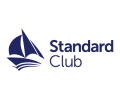

Transport Canada recently issued new Ballast Water Regulations (SOR/2021-120) which are now in force.
The Regulations apply to Canadian vessels everywhere and to foreign vessels that are in waters under Canadian jurisdiction. The new Regulations give effect to Canada’s obligations under the International Convention for the Control and Management of Ship’s Ballast Water and Sediments 2004.
The Regulations impose requirements based on the vessel’s length, ballast water capacity, date of construction and area of operation. While the earlier Ballast Water Control and Management Regulations are repealed, the new Regulations maintain some of the foundational requirements such as those on reporting.
Vessels operating internationally are required to:
• have on board and implement an approved vessel-specific Ballast Water Management Plan
• be surveyed and carry a Ballast Water Management Certificate
• meet a performance standard that limits the number of organisms capable of reproducing in order to reduce the risk of aquatic species invasions (vessels are expected to use a Ballast Water Management System (BWMS) to meet the performance standard)
• record ballast water operations and maintain a Ballast Water Record Book on board
• be subject to inspections in ports or offshore terminals to ensure compliance
These vessels will also be subject to some former provisions that remain relevant and are not part of the Convention regime:
• to flush otherwise-empty ballast tanks with open ocean water in order to reduce the risk posed by any residual ballast water and sediments
• to exchange and flush ballast tanks in addition to meeting the performance standard when traveling to Canadian fresh waters (from outside of waters under Canadian jurisdiction, the Great Lakes and the high seas)
• to conduct any exchange or flushing operation in waters at least 2000 metres deep, whenever possible
• to report on the provenance and management of ballast water released in Canada
Domestic and Great Lakes vessels will have to comply with these requirements as well. However, US vessels which transit through Canadian waters of the Great Lakes Basin without loading or unloading ballast water (other than ballast water necessary for the purpose of ensuring the safety of the vessel on a voyage between non-Canadian ports) will be exempt from the Regulations.
Timelines for compliance are provided. These vary depending on when the vessel was constructed.
For more information, please see Transport Canada’s Ship Safety Bulletin 09/2021 which is available on the Government of Canada website. If you have any questions or concerns, please contact your usual club contact.
Source: The Standard Club